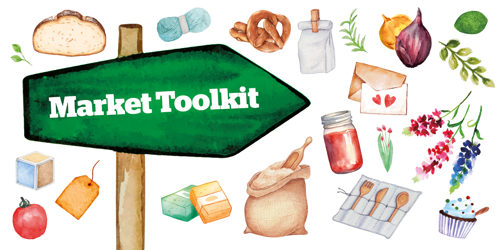Setting up your market

Within our business plan, a key commitment of ours is to help local businesses and economies grow across South Cambridgeshire.
We work closely with local businesses, stallholders, traders and event organisers to run markets across the district.
They bring a range of benefits to local communities and businesses acting as springboards for budding entrepreneurs, meeting places for residents and generating community spirit.
Please let us know if you want to start a new market or even if you're an established market looking to attract more visitors. You can tell us how we can help by completing our online form below.
Market research
Before starting your market, we advise you carry out research into the type of market you would like to set up. This can be done in a number of ways including:
- an online survey, like Microsoft Forms or Surveymonkey
- speaking at local community events
- reaching out to your local Parish Councillor
- posting on local social media groups
- research what status you want your market to move forward under. Markets can opt to apply for a charitable status that presents more options and opportunities. Find out how to set up your charity.
These are effective tools in asking for general feedback to give you a better understanding on how you need to move forward.
If you don't feel local consultation is required, starting a market organically may be your preferred option. However, it should be recognised, there may be tasks to undertake including assigning volunteers or applying for funding.
Deciding your market type
Beyond the typical range of products you might find at a market, we are now seeing more range in market themes as well. For example:
- eco-friendly and sustainable-focused marketplaces
- vegan food fares
- craft guilds
- coffee festivals.
When starting your market, it is a good idea to think about your theme. This could be:
- general market - selling a range of household products, gardening equipment, clothes and accessories
- farmer's market - offering fresh goods and groceries such as fruits, locally sourced vegetables, fresh bread, meat, fish, honey, eggs
- food market - promoting food trucks and mobile caterers from the district
- craft and textiles market - handcrafted items such as glasswork or woodwork.
There are different types of street trading consent policies in place and it is the responsibility of the market organiser to ensure traders are registered with us.
Your stallholders may also, depending on your market type, contribute by paying a pitch fee or a small sum towards a charitable cause. In South Cambridgeshire pitch fees range between £5 and £25. Costs can depend on guaranteed market footfall or how long the market has been running. Community markets may not ask for a pitch fee but may take a percentage of the overall takings instead.
Finding a market location
Suitable market locations may include:
- outdoor green spaces such as villages commons or community greens
- large car parks
- village halls or community centers
- school playgrounds.
Indoor event venues must be accessible to all visitors and will require permissions, please consider:
- facilities available in the venue (for example, village hall kitchens and water facilities)
- car parking
- toilets
- power supplies (for traders and lighting)
- disability access (for example, disabled parking, an access ramp, a lift if the venue is on multiple floors, accessible toilets)
- secure storage space for market stall or marquees.
You may require certain land permissions or requests that will need to be approved. Please make sure you:
- obtain any permissions in writing where possible
- consider insurance costs and who will be liable if accidents/injuries unfortunately occur
- consider the potential cost to lease land and/or facilities.
Organising your market
Consider who will be running your market. This could include:
- the local community
- your Parish Council
- your Town Council
- a private enterprise.
You also need to think about whether it will be run by paid staff (for example a market manager and assisting support staff) or by local volunteers.
We can assist with planning and signposting resources and advising on other services. This gives market organisers more ways of networking. Here are some key services we liaise with already:
- Cambridgeshire County Council - highways and traffic
- Safety Advisory Group - event management and safety
- Cambridgeshire Police
- Cambridgeshire Fire and Rescue Service
Other resources:
Your market frequency
How often will your market run for and during what days and times?
Our existing markets range from being every week to once per year, but you may wish to consider having yours:
- daily
- weekly (perhaps twice per week, once on a weekday and then on a weekend)
- monthly (the first or third Saturday of each month is commonly used)
- seasonally (for example a Christmas Market or outdoor summertime event).
We recommend being open between 2 and 3 hours, perhaps from late morning to early afternoon. Other times may include:
- morning (for example, 08:30am to 11:30am)
- afternoon (for example, 12pm to 3pm)
- evening (for example, 5:30pm to 7:30pm, perhaps an event attracting mobile caterers to a village hall or an approved consented premises)
- all day.
Taking payments
Many market stallholders opt to use contactless card readers instead of cash.
For more information on this subject, so please take a look at our guidance document on taking payments at markets [PDF, 89Kb].
Health and safety
When organising and operating a market stall or any event, health and safety is very important. There may be risks to the public and it is the responsibility of both the stallholders and organisers to understand and comply with health and safety legislation.
Failing to follow legislation and/or guidance may be viewed as a breach of a licence agreement to trade at your market. It is important to consider the following when organising a market or attending as a stallholder.
- Risk assessments – identify the hazards and assess the risk (how likely is it that someone could be harmed and how seriously). Identify what control measures you already have in place, and whether any further controls are needed. Be sure to document the findings and review them regularly. The Health and Safety Executive (HSE) have useful guidance regarding risk assessments, with template and example risk assessments.
- Site management - thinking about different hazards that may occur around the market site such as the impact of moving vehicles in possibly confined spaces such as car parks.
- Fire safety checks - does the market site comply with current fire regulations and have a fire risk assessment?
- Liquefied Petroleum Gas (LPG) checks - a stallholder using LPG at your market will need to have had it inspected by a Gas Safe Register engineer. As a market organiser, evidence of this could be a condition of trading. Furthermore, the strategic placement of stallholders away from higher risk areas on site needs to be considered. More information can be found on the HSE website.
- Noise and light compliance - will running a market disturb nearby residential neighbours or businesses? Consent or notice should be given in this instance.
- Weather forecasting for outdoor events - putting preventive measures in place to prevents slips and trips, as well as bracing against strong winds with sturdy equipment and gazebos.
- First Aid - having qualified individuals on site and the necessary in date equipment and whether your facility / location has a First Aid Kit. For larger scale market events, you may consider using a qualified voluntary service like St John Ambulance.
- Slips, trips and spills - it is advisable to have procedures to reduce these risks such as having spill kits available, absorbent material to soak up any liquids or having spill resistant matting laid in front of food or drink stalls. Ensure all wires, cabling and other trip hazards are removed from public walkways.
- Food safety - keeping food safe, appropriately labelled and fresh is a crucial aspect to consider. Guidance on food hygiene and allergen labelling requirements can be found on the Food Standards Agency website.
You may need to follow other local legislation or provide evidence of:
- Public Liability Insurance and accidental damage cover
- registration of food vendors with a local authority (for example, are they registered with their local authority and have they been provided with a national food hygiene rating scheme score 0-5)
- stallholders' commitment to being Trading Standards compliant.
- temporary events notice (for example if selling alcohol and there is organised entertainment at your event)
- depending on the market size and how many people are expected to attend, you may need approval or attendance from the Safety Advisory Group
- intentions to close public roads to host a market will require a Temporary Traffic Regulation Order. Please apply via Cambridgeshire County Council.
Waste collection is also something to consider for your market. Please visit the the Greater Cambridge Shared Waste website for more information.

